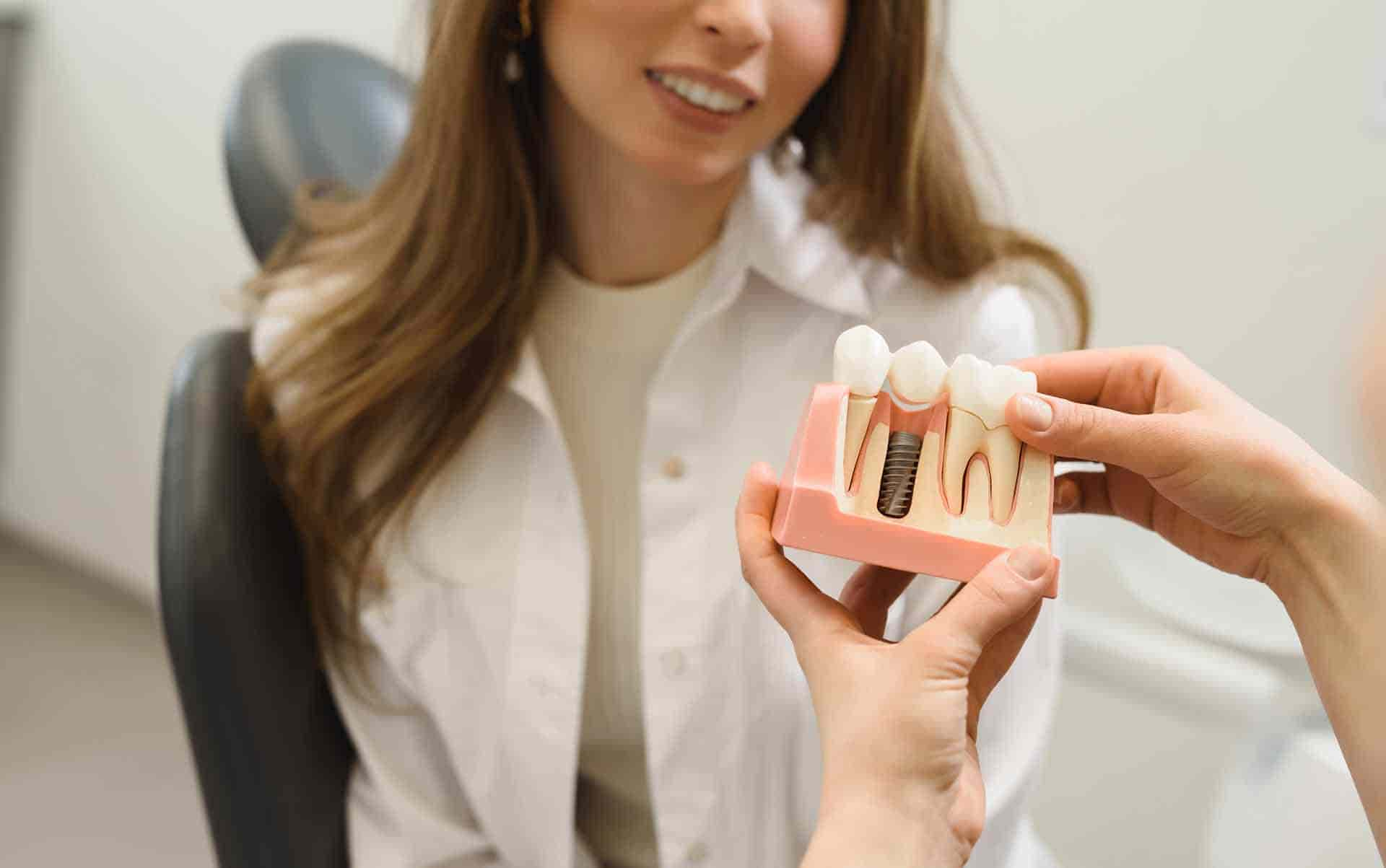How to Reduce Swelling After Oral Surgery
September 2025
Swelling is one of the most common side effects after oral surgery. Whether you've had your wisdom teeth removed, a tooth extraction, or another procedure, swelling is part of the natural healing process. Still, it can feel uncomfortable and leave you wondering: how do I reduce swelling after oral surgery?
The good news is that there are proven steps you can take to manage inflammation, speed up recovery, and feel more comfortable. In this blog, we’ll cover home remedies, timelines, foods that promote healing, and signs to watch for during recovery.
Home Remedies for Swollen Face After Tooth Extraction
If you’re looking for simple and effective ways to manage discomfort, these home remedies for a swollen face after tooth extraction can help:
- Cold compress or ice pack: Apply an ice pack to the outside of your cheek for 15–20 minutes at a time during the first 24 hours. This helps minimize inflammation and provides numbing relief.
- Keep your head elevated: Use extra pillows while resting or sleeping. Keeping your head above your heart reduces fluid buildup and helps swelling subside.
- Stay hydrated: Drink plenty of water to support circulation and healing. Avoid alcohol and carbonated drinks.
- Stick to soft foods: Eating foods like yogurt, mashed potatoes, applesauce, and smoothies prevents irritation and helps your body focus on recovery.
- Avoid hot compresses early: While heat may feel soothing, it can worsen swelling during the first 48 hours. Save warm compresses for later stages if recommended by your dentist.
These simple steps are often enough to keep swelling under control during the first few days.
When Should I Worry About Swelling After Tooth Extraction?
Some swelling is normal, but it’s important to recognize when it may signal a problem. So, when should you worry about swelling after a tooth extraction?
You should contact your dentist or oral surgeon if you notice:
- Swelling that gets worse after 3 days instead of improving
- Severe pain not relieved by prescribed medication
- Pus, foul taste, or signs of infection around the extraction site
- Fever or difficulty breathing/swallowing
These could be signs of infection or complications that require professional attention.
How Long Will My Face Be Swollen After Oral Surgery?
Every patient heals differently, but generally, swelling follows a predictable timeline:
- First 24 hours: Swelling begins and gradually increases.
- 48 hours: Swelling typically peaks during this period.
- Day 3–4: Inflammation should begin to subside.
- Day 7: Most swelling is significantly reduced, though minor puffiness may linger.
By keeping your head elevated, using ice packs early, and following your surgeon’s aftercare instructions, you can help reduce the duration and severity of swelling.
Foods That Promote Healing After Oral Surgery
Nutrition plays a big role in how quickly you recover. Here are some of the best foods that promote healing after oral surgery:
- Soft fruits and vegetables: Bananas, avocados, and steamed carrots are gentle on your mouth and packed with nutrients.
- Protein-rich foods: Eggs, cottage cheese, and protein shakes support tissue repair.
- Broths and soups: These provide hydration and nutrients but should be lukewarm, not hot.
- Smoothies with leafy greens: Add spinach or kale for vitamins and antioxidants, but avoid using a straw, which can dislodge blood clots.
A soft food diet for at least the first few days helps you avoid irritation and ensures your body has the nutrients needed for faster healing.
Oral Surgery Recovery: 5 Tips to Reduce Facial Swelling
To recap, here are five effective ways to reduce swelling after oral surgery:
- Apply an ice pack during the first 24–48 hours.
- Keep your head elevated when resting or sleeping.
- Drink water and avoid alcohol or carbonated drinks.
- Stick to nutrient-rich soft foods and avoid straws.
- Follow all aftercare instructions from your oral surgeon.
By combining these tips with patience and proper care, you’ll be supporting your body’s natural healing process.
Final Thoughts: Managing Swelling After Oral Surgery
Swelling after an extraction or oral surgery is completely normal, it’s part of the healing process. By knowing how to reduce swelling after oral surgery and what warning signs to watch for, you can recover more comfortably and with confidence.
At Raio Dental, our team of experienced specialists provides personalized care for extractions, wisdom teeth removal, and other oral surgery procedures. We guide you every step of the way, from treatment through recovery, to ensure you heal safely and effectively.
Learn more about our endodontics and oral surgery services in New York and schedule your appointment today.

A Complete Guide to Restoring Damaged Teeth in New York
January 2026Key Takeaways:- Restoring damaged teeth is more reliable than ever with modern dentistry Early treatment helps repair damaged teeth before problems progress Damaged enamel restoration focuses on mineralization and protection, not true regrowth Restorative ...
Preventive Dental Care Trends in 2026: Early Detection & Smart Care
January 2026Key Takeaways:- Preventive dental care trends in 2026 are all about catching problems early and tailoring care to each patient Digital diagnostics and smart oral devices make proactive dental care easier than ...
Is Professional Teeth Whitening Worth the Cost in New York?
January 2026Key Takeaways Professional teeth whitening delivers faster, longer-lasting results In-office treatments are safer than over-the-counter kits Whitening improves confidence and smile appearance Dentist-guided whitening reduces sensitivity risks Results typically last 6–12 months with good care Professional ...
Is Teeth Whitening Permanent?
January 2026A bright, white smile can boost confidence and transform your appearance but one common question patients often ask is, "is teeth whitening permanent?". The truth is that while teeth whitening ...
All-on-X Implants vs. Traditional Dentures: Pros and Cons
October 2025When considering tooth replacement options, many patients wonder about All-on-X Implants vs. Traditional Dentures: Pros and Cons. Both solutions can restore a full arch of teeth, improve oral health, and ...
Maintenance & Aftercare of All-on-X Implants
October 2025Maintenance & Aftercare of All-on-X Implants is essential to ensure the long-term success of your full-arch dental restoration. All-on-X implants offer a stable, durable solution for patients missing multiple teeth, ...
Can a Night Guard Help With Snoring?
September 2025Snoring is a common issue that affects both the person snoring and their sleep partner. For some, it's just a minor nuisance, but for others, it can signal an underlying ...
How to Reduce Swelling After Oral Surgery
September 2025Swelling is one of the most common side effects after oral surgery. Whether you've had your wisdom teeth removed, a tooth extraction, or another procedure, swelling is part of the ...
Can TMJ Cause Dizziness? Understanding the Link Between Jaw Disorders and Balance
August 2025Do you ever feel lightheaded for no clear reason? Struggle with sudden dizziness when standing up or turning your head? Feel off-balance even when everything else seems normal? These symptoms ...
Can Orthodontics Improve a Misaligned Jaw?
September 2025Did you know? A misaligned jaw can cause chronic headaches, ear pain, difficulty chewing, and even lead to temporomandibular joint (TMJ) disorders. Most people think orthodontics is only for straightening ...
What Happens If You Drink Alcohol After Fluoride Treatment?
June 2025Did you know fluoride treatments can reduce tooth decay by nearly 25%? That's why many people include it in their regular dental visits. But once the treatment is done, you ...
























